Several films released in 2018 dealt with difficult subject matter that strayed dangerously close to home. One such film was Panos Cosmatos’ “Mandy”.
Mandy was hailed a visceral exploration of grief and a must watch for those that were fans of Nicolas Cage. Between the stunning candy colored visuals and madcap chainsaw brawls lies a reality that is all too close to our own. The titular character herself suffers a fate that mirrors many actual women.
Sit back for a second and think to yourself, “Have I read a headline where a woman was killed for rejecting a man?” With certainty, I can say that you have several times within the last few years. It’s not an uncommon occurrence at all, which is what makes Mandy’s death such a jarring experience for the viewer. In slasher movies, at least we are safe from logic with men in hockey masks doling out improbable kills and are seemingly unable to stay dead.
Mandy doesn’t provide us with such escapism despite its ‘out there’ elements. It’s not a film that thrives on the viewers’ escapism.
Instead, it realizes some of life’s most harrowing facets and puts them into deep focus against a canvas of the fantastic.
When we meet Mandy, she is a wholly transfixing person played by an otherworldly Andrea Riseborough (Birdman, Battle of the Sexes, Nancy). It’s difficult not to feel an attachment to her. She’s relatable as she gets lost in her artwork and reads her paperback fantasy novels. It’s never completely confirmed, but Mandy’s gentle and quiet nature —and the garish scar that mars her face — are results of an abusive past.
Early in the film, Mandy recounts a traumatizing moment from her childhood when her father attempts to force her and the neighborhood children to kill baby starlings. The first half of the film spends a great deal of time developing Mandy and her relationship with Red (played by Nicolas Cage). We get to know this passionate woman. This makes her impending murder at the hands of cult leader Jeremiah Sand (Linus Roache) all the more bitter and caustic.
To understand Mandy’s death in full, one has to take a look at the man who perpetrates it.
Jeremiah Sand is a failed folk singer who found more success as a cult leader. His followers pander to his childish whims with little resistance. To an outsider, Sand seems little more an a petulant man who has a grandiose sense of self. But the way he commands himself as leader has drawn in the members of his cult. He teeters on the edge of free love and senseless violence. Sand is someone who is totally controlled by his own egotism.
His fixation on Mandy starts when he spies her walking to work from his vehicle window.
Mandy becomes an obsession for him, something — not someone — to possess and covet.
He must have Mandy at all costs. Sand even throws a tantrum over having to have Mandy that would rival even the grandest fit a toddler could throw. His “need” for her ends in a tragic home invasion where he and his followers disrupt the serene safe haven that Mandy and Red have created together.
Red is subdued. Mandy is forcibly drugged before she is brought to Sand to lower her inhibitions and put her in a state of confusion. Sand, clad in nothing but a white dressing robe, makes a long spiel about how special he is. Meanwhile, a song that he wrote and performed about himself plays in the background. Though thoroughly drugged, Mandy has enough of her wits about her that she can see that Sand is a self-absorbed joke. Sand’s conceit and childishness make him difficult for Mandy and the viewer to take seriously. But they also make him extremely dangerous.
At the end of his grand speech, Sand disrobes and exposes himself to Mandy like a cult-leading Louis C.K. This is Mandy’s breaking point. She’s just no longer able to hold herself any longer in the presence of this ridiculous man.
The mistake Mandy makes is a simple one that will cost her life.
She laughs at him. We’re not talking a giggle either. Mandy full on laughs at Sand, and reasonably so. Mandy’s laughter at Sand sends him into a rage. He has Mandy placed in what appears to be a burlap sack. He hangs that sack in a tree and lights her on fire, all while an injured Red has to watch her burn to ashes.
Before Sand has Mandy immolated, he has a little one-sided discussion with a bound and gagged Red. He calls Mandy an ugly whore, which is a familiar tactic employed by rejected men who are riding high on the patriarchal notion that they are entitled to a woman’s time, attention, and affection.
Not even ten minutes earlier in the narrative, Sand found Mandy to be the most intoxicating creature on this planet and that he had to have. But now after her rejection, she’s just a whore. Many women have stories where, when they tell men they are not interested in them, no matter how politely, they are met with vile insults that are not just limited to “whore,” “bitch,” ugly,” and “slut.” It makes little sense. But then again, toxic masculinity never does.
Looking at headlines that chronicle the murders of women at the hands of men can be difficult to stomach for anyone.
It’s how to reconcile how these senseless murders are often based in patriarchal male entitlement and toxic masculinity. Several widespread acts of domestic terror have had rejection as a core motivator. Alek Minassian, the man who killed 10 pedestrians by plowing into them with a van in Toronto in April of last year, was one such man. He was an active member of the violently misogynistic “incel” (slang for involuntarily celibate) online community that largely calls for retribution against women for not being interested in them romantically and sexually.
Incels have such radically disgusting and harmful male supremacy ideology that they are listed as a hate group on the Southern Poverty Law Center website.
Before committing his crimes, Minassian posted to Facebook praising Elliot Rodger. Rodger killed seven and injured fourteen in Isla Vista in 2014 as revenge for being sexually rejected. He became something of a martyr for the incel cause after his attacks and suicide.
Among the victims of Santa Fe High School shooter Dimitrios Pagourtzis was Shana Fisher, a classmate of Pagourtzis relentlessly tormented with advances. Fisher repeatedly told Pagourtzis no, and it escalated to the point that Fisher had to confront Pagourtzis in class. A week later, Pagourtzis would open fire on school and Fisher would be dead.
There are of course incidents that aren’t full-blown terroristic attacks, but that doesn’t make them any less harrowing or disturbing.
In 2014, Maren Sanchez declined Christopher Plaskon’s invitation to prom. Plaskon took it upon himself to get revenge by stabbing Sanchez in the neck. Plaskon was sentenced to a meager 25 years in jail for Sanchez’s murder.
Dr. Tamara O’Neal was murdered in 2018 at her place of work by her ex-fiancé because of their broken engagement. In Queens, New York, in 2014, a young woman had her throat slit because she turned down a man. Luckily, this victim survived her attack, but so many do not. Mary Spears, a citizen of Detroit and mother of three, was murdered in public by a man simply because she refused to give him her number.
I could, quite literally, spend days recounting incidents similar to these where rejection was the basis for a woman’s attack or murder.
Watching the scene where Mandy rejects Sand and is subsequently killed for doing so felt like a slap to the face to me as a viewer and as a woman.
I’ve seen events like this recounted in the news. I could very well be a victim of comparable crime, and the women in my life could as well. At one point, I had to pause the movie and take a break before returning to it.
No amount of demon bikers, psychedelic drugs, and Nicolas Cage crying in his underwear while downing vodka could strip that moment of its ugly realism for me. Sand himself was tinged with the snide surety and ego of men who I have met in my life.
In a world where women are forced to give out fake numbers, make up false boyfriends, and ask their friends to rescue them from uncomfortable male encounters, that scene rang bitingly true.


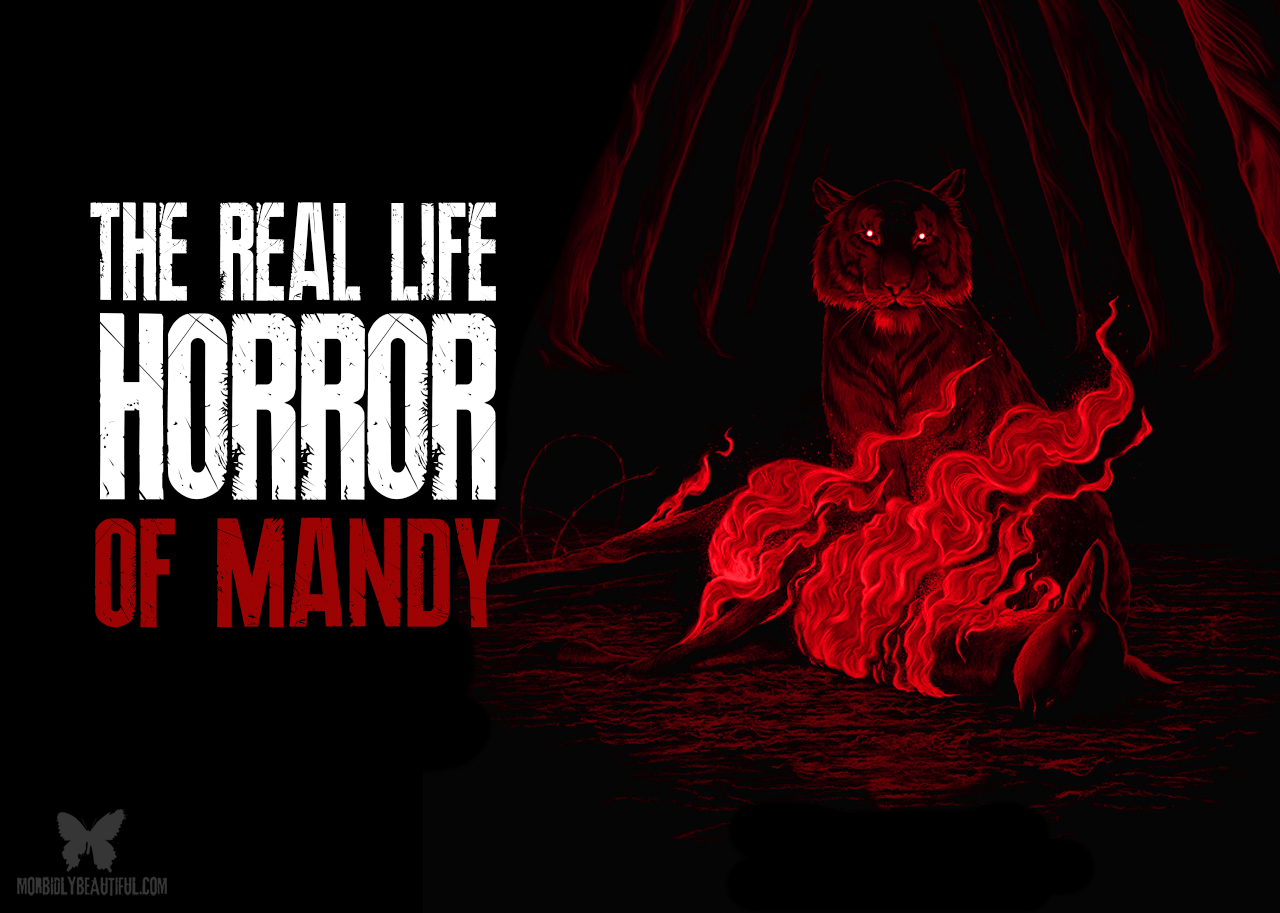
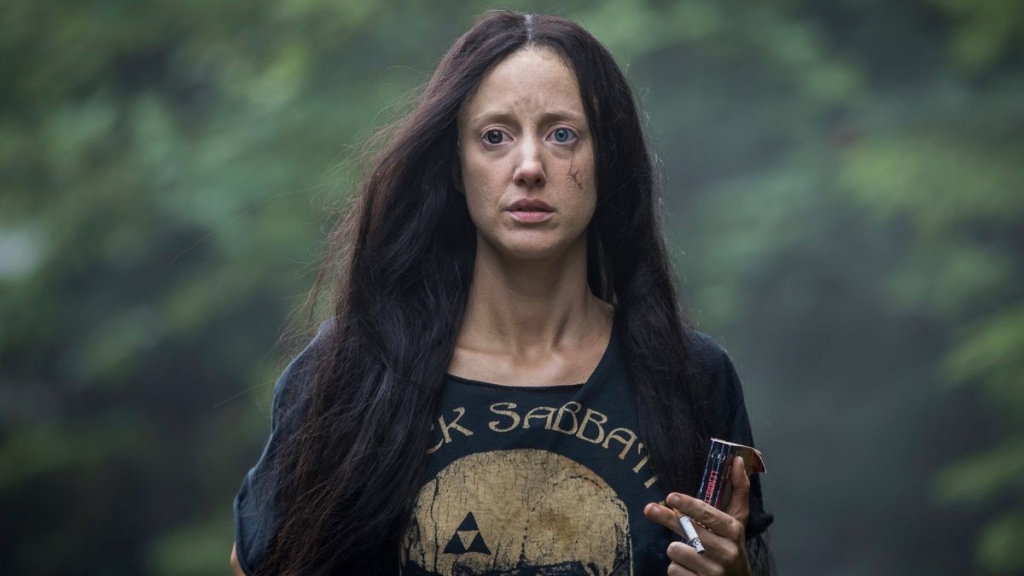
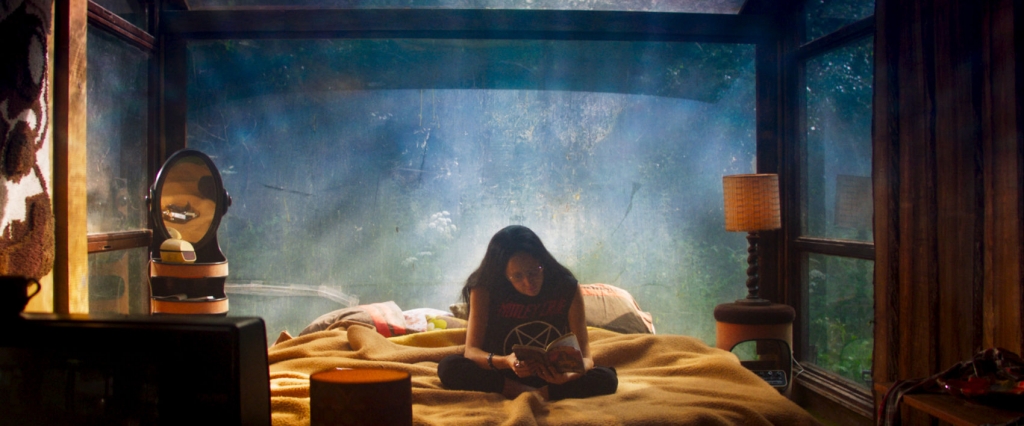
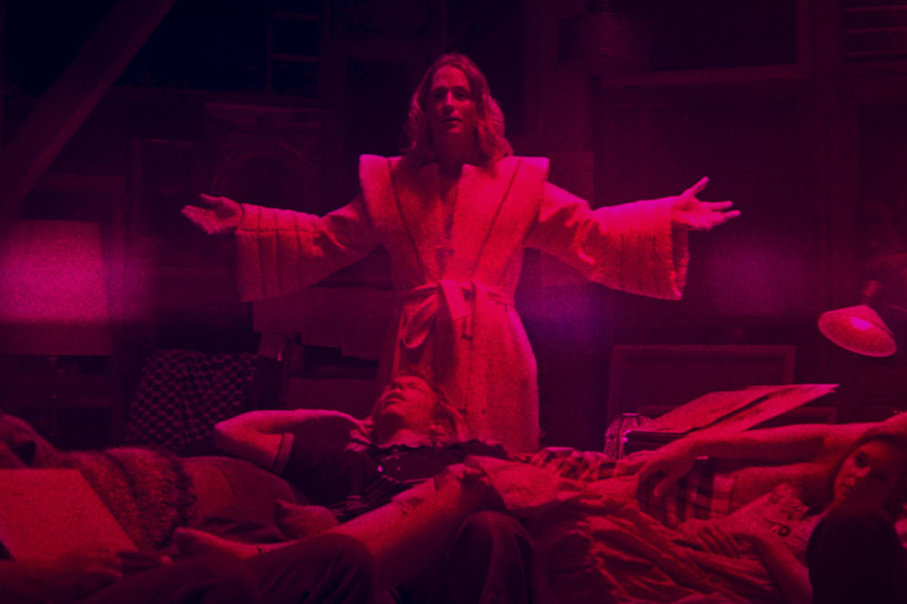
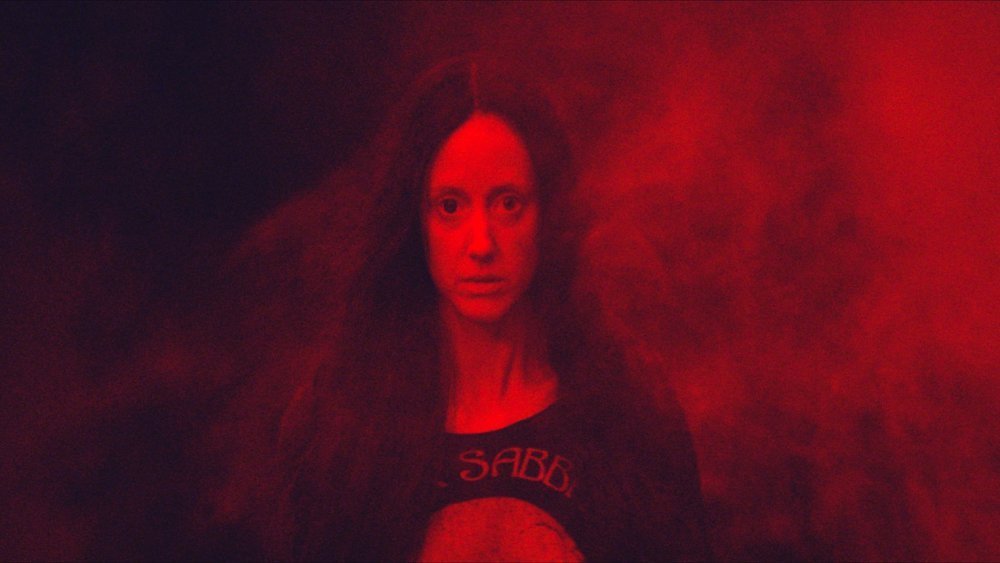
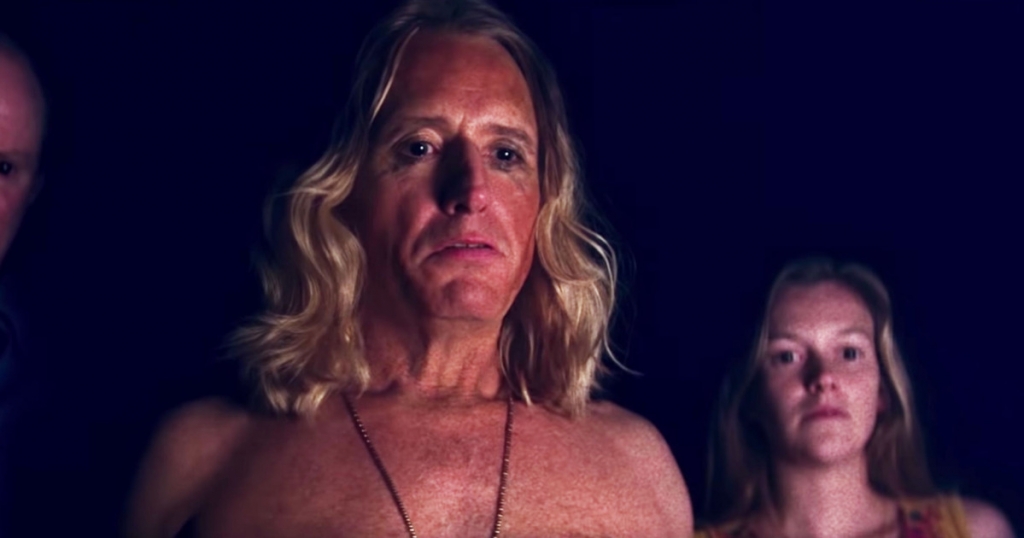
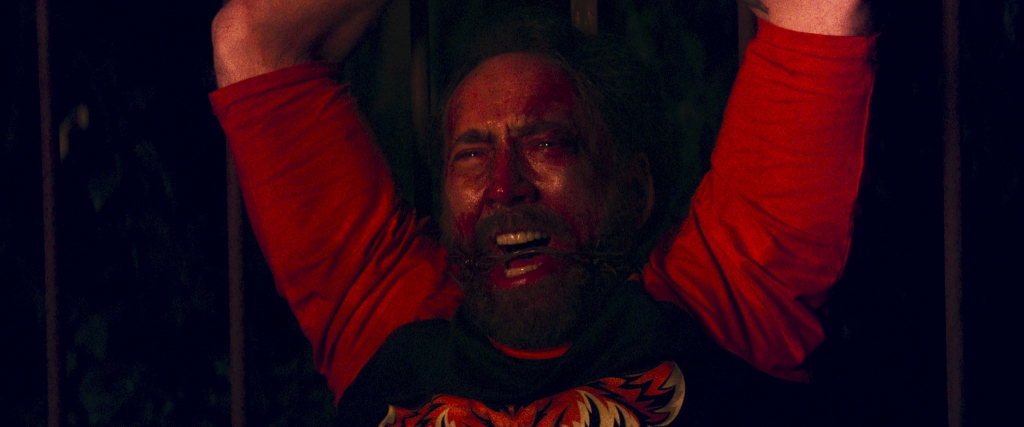


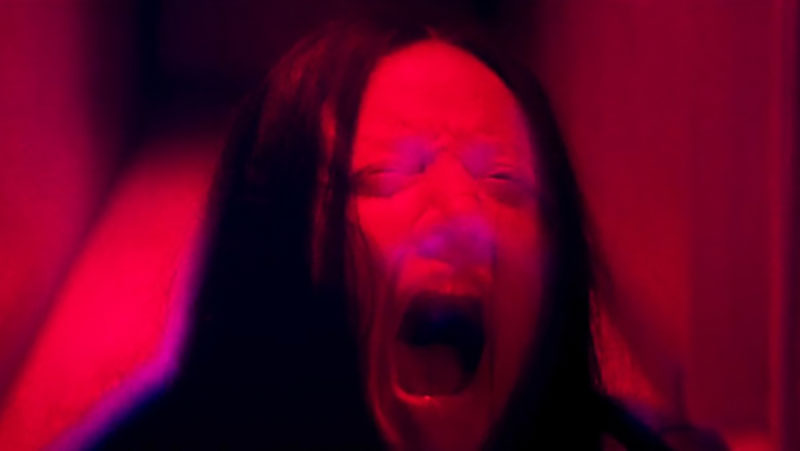



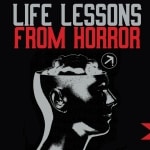











1 Comment
1 Record
Candace wrote: